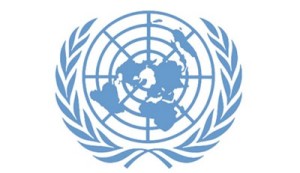Last week, I got to be a part of the program for a group visiting Portland through the US State Department’s International Visitor Leadership Program (IVLP). It was the fourth time I’ve gotten to be a part of the program over the years – the first time was in Austin, Texas, back in the 1990s. This time, visitors were from Egypt, Afghanistan, Liberia, Tunisia, Latvia, Greece, Mexico, El Salvador, Morocco, South Africa, Cameroon, the Philippines, Ethiopia, and more.
Talking with leaders of NGOs from all over the world is incredibly energizing – for me, it feels like coming home. Many are stunned that I’ve been to their countries – or that I even know where their countries are, what language they speak there, etc., in contrast to so many people in the USA. I’m sorry to sound the snob, but my fellow citizens are notorious worldwide for our ignorance about the rest of the planet, and not even having a passport, and I’m proud to be in contrast to that stereotype.
(just last week, I had to explain to a very close friend what the European Union was – she’s a very intelligent person, but if none of the news outlets ever mention the EU, how would she know what it is?).
This time with the IVLP, I was part of a small group of members from the Northwest Oregon Volunteer Administrators Association (NOVAA); instead of a traditional workshop, we divided up and each spent time with three people, for 20 minutes, talking about volunteer engagement, and would switch to a new group every 20 minutes. It allowed me to get one-on-one time with more than half the NGO representatives, and that’s always delightful. Many of the problems they face regarding volunteer engagement are the same as anywhere: trouble mainitaining volunteer motivation, volunteers not finishing assignments, too many volunteers one day and not enough another, etc. I hope they found my references helpful – hard to address everything in just 20 minutes!
One moment for me that I particularly loved: how integral social media is for many of these NGOs in working with volunteers. I loved hearing about all the ways they recruit, interact with and support volunteers using various social media tools, reaching volunteers via their phones as much, if not more, than via their computers – all said that, for the most part, email is dead for their young volunteers (people under 40) altogether. These NGOs haven’t needed workshops or conferences to convince them these tools are valuable; they’ve seen their value immediately. When I told them just how many nonprofits here in the USA refuse to use Facebook, Twitter, or other social media tools to work with volunteers, about how, if nonprofits here do decide to use such, they often give social media responsibilities to interns and senior management stays away from such, and how often I’ve had hostile reactions to the tech practices that these NGOs, by contrast, have fully embraced, they were floored. And they laughed. A lot. And when I told them that, in Oregon, in the supposedly oh-so-tech-savvy Portland area, I have had women younger than me say, “Oh, I don’t have email, so send that to my husband’s/daughter’s address, and he/she will print it out for me to read,” their jaws dropped.
True, many of these NGOs aren’t recruiting ethnic minorities, religious minorities and other marginalized groups as volunteers in their countries – and don’t see why they should have to make volunteering more accessible to such. They don’t see who they might be leaving out as volunteers by totally abandoning offline recruitment and support methods. In short, their volunteer engagement is not perfect and needs to further modernized, especially in terms of being inclusive – but what they are doing in terms of leveraging networked technologies in recruiting, involving and supporting volunteers is far, far ahead of what most nonprofits are doing in the USA. And all I can say is: WELL DONE. And keep teaching me!
Another big emphasis for these NGOs in particular is involving young people as volunteers – young people who are unemployed or under-employed, people under 40 with some education but who cannot find jobs. These NGOs see volunteer engagement with young people as a way not only to build the skills of those young people so that they can get jobs – or even start their own businesses – but also to give these young people a sense of civic responsibility and community connection beyond protesting in the streets. I was happy to help address some of these ideas in my very limited conversations, and welcomed their online inquiries so I can send them to further resources.
And, finally, I apologize to the guys from West Africa who were offended I hadn’t been to any of their countries yet (I’m trying!), and if the guy from the Philippines does not send me the photo he took of myself and the guy from Afghanistan wearing the cowboy that he bought in Texas, with both of us making the “hook ’em horns” sign, I will be DEVASTATED.
POSTSCRIPT: Not devastated.
For more information about my training.
Also see:
 The United Nations Volunteers (UNV) programme, in partnership with ActionAid, the Association of Voluntary Centres (in Russian), the Beijing Volunteer Federation, the International Federation of Red Cross and Red Crescent Societies, the Japan International Cooperation Agency (JICA), and Volunteer Service Overseas (VSO), is deploying 15 national and international volunteer researchers to collect evidence on the contribution of volunteerism in fragile communities and post-conflict environments.
The United Nations Volunteers (UNV) programme, in partnership with ActionAid, the Association of Voluntary Centres (in Russian), the Beijing Volunteer Federation, the International Federation of Red Cross and Red Crescent Societies, the Japan International Cooperation Agency (JICA), and Volunteer Service Overseas (VSO), is deploying 15 national and international volunteer researchers to collect evidence on the contribution of volunteerism in fragile communities and post-conflict environments.